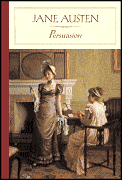
A man walks into a bar, gets drunk, sells his longsuffering wife and infant daughter to a stranger for five smackers. POW! What a hook. What a first chapter. The next day, he wakes up sober, repents, and walks to the nearest church. At the altar, he swears off drink for the next 21 years. He looks for his wife, but it's too late; she's gone. WHAT WILL HAPPEN!?
If I'd had a seat, I would have been on the edge of it. Fortunately I was sitting on the floor, watching the children in the tub. But I was riveted to the point that the children were in danger of hypothermia. That's a hook, my friend, worthy of a high concept Hollywood road movie starring Vince Vaughn and and Benicio del Toro. What, you don't think they would be good together? They would be GREAT together.
The Hollywood movie would then switch over to the wife with her new husband, see how they're getting on, and then switch back to the original husband, etc. Not this book. Instead, Hardy takes 19 years out of the story, brings us back to the wife returning to look for the original husband, daughter in tow. Okay. Now he's the mayor of a fine big town and one of the big time corn dealers as well. Rich, famous, well-respected, and still not drinking. From there, things go downhill, as you might expect from a Thomas Hardy novel. You will not be surprised to learn that the couple did not quietly reunite and live out the rest of their days happily and without notice. They were noticed.

Another thing I have come to expect about a Thomas Hardy novel is a female main character whose virtue or position is compromised in public court of opinion through no real fault of her own, but just because she was following a logical course of action, or acting under impulses we today would find quite normal. Tess, Sue, Elfride, all are caught both by cultural circumstances and mistakes that we all can see they should not make. The bad ends to which they come are both brought on by their own bad choices and dictated by the restraints of Victorian society, both high and low.
In this novel, there is no such character. Lucetta comes close to this, but isn't really central enough, or independent enough, to fit. I realized only when I was near the end that the main character was actually the man, or the men, the two men who share the title "Mayor of Casterbridge" during the span of the book. Then it all became clear. The main character, Michael Henchard, the man who originally sold his wife, is the one whose impulsive, passionate character and rotten choices seal his tragic failure -- he has more in common with Tess, actually, than the other women do -- uneducated, irrational, earthy, but bizarrely driven by good intentions. Donald Farfrae, the other mayor, has much in common with Bathsheba from
Far from the Madding Crowd, as he also gets his final quiet happy ending, with the one he should have had all along.
It made more sense once I figured out I wasn't supposed to really like the females, because I didn't. I love the way Hardy writes women, particularly Sue Bridehead. Particularly the incomparable Tess. But the women in this book were unsatisfying. Maybe he just hadn't got there yet -- Sue and Tess were to come later. Bathsheba was ten years previous.
People who are not fans of Thomas Hardy are permitted to skip the previous three paragraphs. Oh, should I have mentioned this before you slogged through all that? Woops.
Here's a writerly note: The opening scenes of the novel are really an *excellent* example of how the pros used to do third person objective point of view, you know, just the human witness, no insights into anyone's thoughts or feelings, motives or past. The opening of the book was really SO amazing. I do so love Thomas Hardy. Just look at him there, with his moustache. You could just eat him.
I think now I have read all the Thomas Hardy I need to read. I've read five of his novels, including all the famous ones and one of the romances. It makes me a little sad. I remember when I first read his poem, "Neutral Tones," and I initially thought, what a dull little plop that was, but it really stayed with me, okay, I know this makes me sound like a SUPERFOOL, but I always remember that first reading of it. Here it is:
NEUTRAL TONES
by: Thomas Hardy (1840-1928)
We stood by a pond that winter day,
And the sun was white, as though chidden of God,
And a few leaves lay on the starving sod,
--They had fallen from an ash, and were gray.
Your eyes on me were as eyes that rove
Over tedious riddles solved years ago;
And some words played between us to and fro--
On which lost the more by our love.
The smile on your mouth was the deadest thing
Alive enough to have strength to die;
And a grin of bitterness swept thereby
Like an ominous bird a-wing….
Since then, keen lessons that love deceives,
And wrings with wrong, have shaped to me
Your face, and the God-curst sun, and a tree,
And a pond edged with grayish leaves.
Yeah! Makes you want to go out and write a bunch of valentines doesn't it! That's Thomas Hardy for you. Writer most likely to make you feel like rolling under the bed and rotting already. Bless his grey little heart.
 This movie wasn't like that. The director, working for the visionary and cutting edge Arts and Entertainment channel, put in everything he could find in the book, and possibly more. Every scene change was marked with a schmaltzy swell of orchestral music, thundering through the same part of theme music from the bleak, obvious score. And there were many scenes. The number of scenes was: maximum.
This movie wasn't like that. The director, working for the visionary and cutting edge Arts and Entertainment channel, put in everything he could find in the book, and possibly more. Every scene change was marked with a schmaltzy swell of orchestral music, thundering through the same part of theme music from the bleak, obvious score. And there were many scenes. The number of scenes was: maximum. The actor who played Michael Henchard reminded me a lot of Chris Cooper. You know him. He's been in various things as Lt. This and Col. That, most recently in "Breach" as that CIA guy. He has one of those mouths that looks like a gash you cut with a kitchen knife in a spaghetti squash, down on both sides. Know what I mean? No? He also has hooded eyelids which he uses to peer into a middle distance when considering manly things. Yet doesn't look like he's ever had stubble.
The actor who played Michael Henchard reminded me a lot of Chris Cooper. You know him. He's been in various things as Lt. This and Col. That, most recently in "Breach" as that CIA guy. He has one of those mouths that looks like a gash you cut with a kitchen knife in a spaghetti squash, down on both sides. Know what I mean? No? He also has hooded eyelids which he uses to peer into a middle distance when considering manly things. Yet doesn't look like he's ever had stubble.











